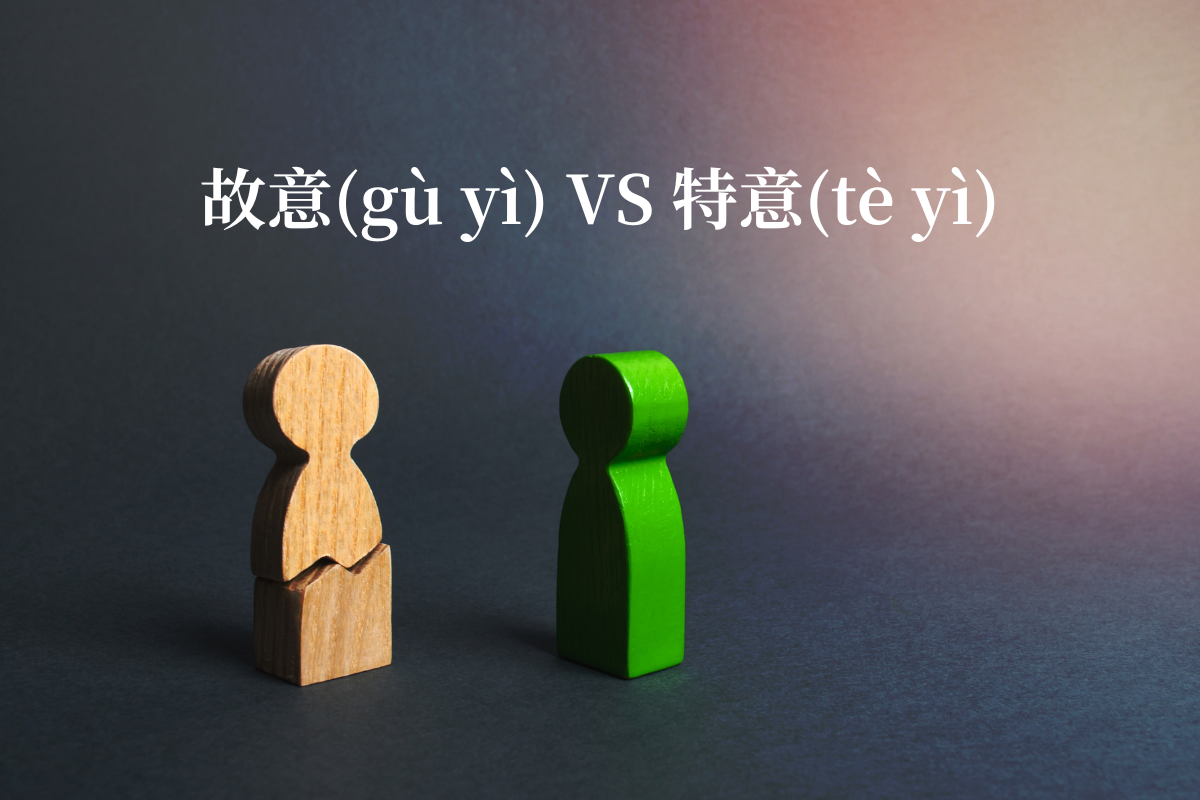HSK Words: 故意 (gù yì) VS 特意 (tè yì)
When learning Chinese, the HSK words 故意 (gù yì) and 特意 (tè yì) are often confused. They all convey some intent or purpose. Their meanings and usage differ slightly. In this article, we will distinguish between these two words by analyzing their meanings and usage.

The word 故意 (gù yì) mainly refers to doing something consciously and deliberately, with intention or motive behind it. It emphasizes the intention and motive behind an action and often carries a negative or derogatory connotation.
Examples:
- He deliberately knocked over the cup.
他故意打翻了杯子。
tā gù yì dǎ fān le bēi zi。 - I know he is lying, but he deliberately concealed the truth.
我知道他在说谎,但他故意隐瞒了真相。
wǒ zhī dào tā zài shuō huǎng,dàn tā gù yì yǐn mán le zhēn xiàng。 - He deliberately told her the truth to make her angry.
他故意把真相告诉了她,想让她生气。
tā gù yì bǎ zhēn xiāng gào sù le tā,xiǎng ràng tā shēng qì。
The word 特意 (tè yì) means doing something in a special way or for a specific purpose. It emphasizes the special nature or importance of an action and is often used to express a positive intention or attitude.
Examples:
- I specially prepared this gift for you.
我特意为你准备了这个礼物。
wǒ tè yì wèi nǐ zhǔn bèi le zhè gè lǐ wù 。 - He used the towel that the master had prepared for him.
他用了主人特意给他准备的毛巾。
tā yòng le zhǔ rén tè yì gěi tā zhǔn bèi de máo jīn 。 - I arrived at the company early especially today.
今天我特意提前到了公司。
jīn tiān wǒ tè yì tí qián dào le gōng sī 。
By understanding the differences in meaning and usage of these two words, we can more accurately use them in Chinese communication, avoiding confusion and misunderstanding.
Quiz: Please consider whether to use 故意 (gù yì) or 特意 (tè yì) in the following sentences.
- 我们____停下来欣赏风景。
wǒ men ____ tíng xià lái xīn shǎng fēng jǐng。 - 他从来不会____伤害任何人。
tā cóng lái bù huì ____ shāng hài rèn hé rén 。 - 他们正____隐瞒消息。
tā men zhèng ____ yǐn mán xiāo xī 。
Answers:
- 特意 (tè yì)
- 故意 (gù yì)
- 故意 (gù yì)